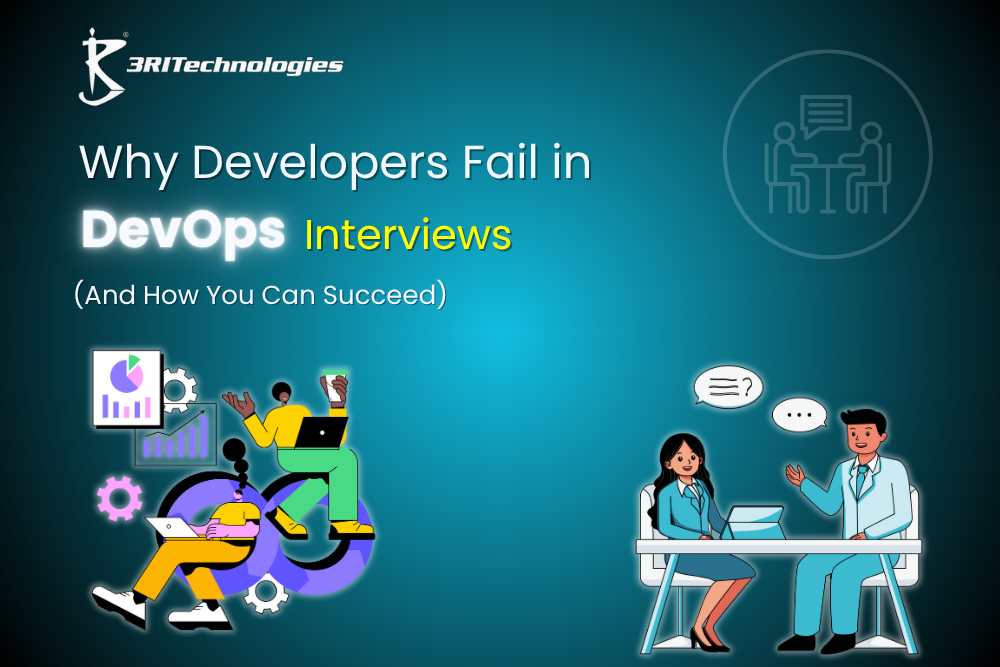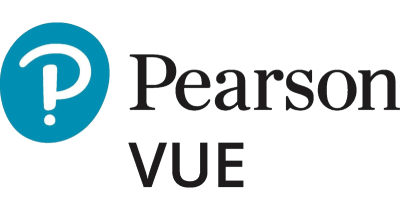Cracking a DevOps interview is no easy feat, especially for developers transitioning into this dynamic and rapidly evolving field. many developers are eager to transition into DevOps roles due to their growing demand and high salaries. However, many of them fail to clear DevOps interviews, even after completing a basic DevOps course. The reason isn’t always a lack of technical knowledge; it often lies in poor preparation strategy, weak understanding of DevOps culture, or inability to apply concepts practically. If you’re someone preparing for a DevOps interview and wondering how to stand out, this blog is for you. We’ll discuss common reasons developers fail, how to avoid those pitfalls, and why enrolling in a DevOps training in Pune or a similar hands-on course can dramatically boost your success rate.
Common Reasons Why Developers Struggle in DevOps Interviews
1. Viewing DevOps as Just Tools, Not a Culture
A common trap developers fall into is treating DevOps as just another stack of tools—Docker, Jenkins, Kubernetes. But DevOps is much more: it’s a philosophy, a culture of collaboration between Development and Operations, focused on continuous delivery and automation.
Interviewers often ask: “What does DevOps mean to you?”
Many answer with a list of tools, missing the bigger picture.
How to Think Differently:
- DevOps is about faster, more reliable delivery cycles.
- It involves communication, shared responsibility, and feedback loops.
- Tools support the process—they’re not the process itself.
Understanding this philosophy is crucial. Many learners grasp this through guided learning paths, especially those that combine DevOps tools with real-time use cases, like some of the well-structured DevOps training programs in Pune.
2. Limited Understanding of CI/CD Beyond the Basics
Developers often list CI/CD as a skill in their resume, but during interviews, they can’t articulate how it works or how to troubleshoot it. Knowing Jenkins exists is not the same as explaining a pipeline you’ve built or optimized.
Common Interview Challenges:
- Can’t explain how stages (build, test, deploy) are linked
- Don’t understand rollback strategies or parallel executions
- Struggle with real-time debugging scenarios in pipelines
Deep-Dive Approach to Prepare:
- Start with Git and Jenkins integration
- Build small pipelines and gradually scale them
- Explore tools like GitHub Actions, CircleCI, and GitLab CI/CD
- Simulate deployment failures and fix them
Hands-on exposure through labs or internal projects helps bridge this gap. Many advanced DevOps courses in Pune now include CI/CD labs using live servers to mimic production environments.
3. Weak Linux and Scripting Skills
Most DevOps tools and environments operate on Linux. Still, developers from Windows backgrounds often lack confidence in command-line operations and scripting.
Why Interviewers Test This Heavily:
- Daily DevOps tasks involve scripting for automation
- Bash scripts help manage deployment tasks, logs, backups
- Efficient command-line navigation saves hours in real-world projects
Key Areas to Practice:
- Bash, Shell scripting
- Commands like awk, sed, grep, chmod, ps, top, systemctl
- Writing scripts for service monitoring, file handling, cron jobs
Instead of memorizing commands, build small scripts daily. A good DevOps learning program should embed Linux fundamentals and scripting from Day 1.
4. No Practical Experience with Infrastructure as Code (IaC)
Infrastructure as Code (IaC) is no longer optional in DevOps. Interviewers expect you to know tools like Terraform and Ansible, and how to version, share, and reuse infrastructure blueprints.
Where Developers Struggle:
- Can’t create basic Terraform configurations
- Don’t know how to define resources using code
- Lack understanding of dynamic provisioning using variables and modules
How to Get Comfortable with IaC:
| Skill Area | Tools to Learn | Use Case Example |
| Provisioning | Terraform | Launch EC2 instances on AWS |
| Configuration Mgmt | Ansible | Set up Nginx on multiple servers |
| Version Control | Git + IaC Tools | Revert changes in infrastructure |
Simulating real-world use cases like auto-scaling groups or secure access using IAM roles can be time-consuming without guidance. Look for DevOps courses that offer live IaC projects so you gain experience that translates directly into interview stories.
5. Shallow Cloud Knowledge
DevOps and cloud computing are deeply intertwined. Whether it’s AWS, Azure, or GCP, cloud-native tools form the backbone of modern DevOps pipelines.
Interview Expectations:
- Design deployment architecture on AWS
- Configure VPCs, security groups, IAM policies
- Use services like EC2, S3, CloudWatch in integration
What You Should Focus On:
- Hosting containerized apps on ECS or EKS
- Building CI/CD using AWS CodePipeline
- Monitoring with CloudWatch and alert automation
Often, beginners get overwhelmed by AWS documentation. This is where structured DevOps cloud modules help simplify cloud architecture with guided tasks and practice labs.
Common DevOps Interview Questions That Stump Developers
Here are some frequently asked DevOps interview questions that many developers fail to answer confidently:
| Interview Area | Sample Questions | Reason for Failure |
| CI/CD | How would you implement a CI/CD pipeline? | Lack of hands-on Jenkins/GitLab CI |
| Containerization | Explain how Docker works and how it’s different from VMs. | Theoretical knowledge only |
| Kubernetes | How do you create and manage a pod in Kubernetes? | Never used kubectl or YAML configurations |
| Monitoring & Logging | What tools would you use for monitoring? | No experience with Prometheus/Grafana |
| Version Control Systems | How do branching strategies affect deployment? | Weak Git skills |
Cracking DevOps Interviews: Common Challenges and How to Overcome Them
DevOps interviews test not only your technical skills but also your ability to adapt, solve problems on the fly, and demonstrate a mindset aligned with continuous improvement. Many candidates face unique challenges that go beyond just technical knowledge. Understanding these hurdles—and how to tackle them—can set you apart in your DevOps career journey.
Challenge 1: Difficulty Explaining Complex Concepts Clearly
In interviews, you might be asked to explain complex DevOps concepts like microservices architecture, container orchestration, or deployment strategies. Struggling to communicate these clearly can leave interviewers uncertain about your true understanding.
How to Overcome:
- Practice breaking down technical ideas into simple terms, as if explaining to a non-technical person.
- Use diagrams or whiteboard exercises if given the chance to illustrate workflows.
- Prepare clear, concise explanations of your past projects involving DevOps tools and methodologies.
Challenge 2: Insufficient Knowledge of Monitoring and Logging Tools
While many focus on CI/CD and automation, monitoring and logging are equally important. Interviewers want to see that you understand how to keep applications healthy and troubleshoot in production.
How to Overcome:
- Gain hands-on experience with tools like Prometheus, Grafana, ELK Stack (Elasticsearch, Logstash, Kibana), and Splunk.
- Learn how to set alerts for anomalies and interpret logs to diagnose issues quickly.
- Discuss examples where monitoring prevented downtime or helped solve critical bugs.
Challenge 3: Inadequate Understanding of Security in DevOps (DevSecOps)
Security integration is critical in modern DevOps pipelines, yet many candidates overlook it or only have surface-level knowledge.
How to Overcome:
- Familiarize yourself with concepts like automated vulnerability scanning, secrets management, and compliance checks within pipelines.
- Study security tools such as HashiCorp Vault, Aqua Security, or Snyk.
- Be ready to talk about how security fits into continuous integration and delivery without slowing down processes.
Challenge 4: Limited Experience with Container Networking and Storage
Containers are a core part of DevOps, but networking and persistent storage within container environments can be challenging to master.
How to Overcome:
- Understand container networking basics: bridge networks, overlay networks, and service discovery.
- Learn how persistent storage works with Kubernetes (e.g., Persistent Volumes, StatefulSets).
- Experiment with deploying stateful applications in container clusters and managing their networking.
Challenge 5: Struggling to Demonstrate Soft Skills and Team Collaboration
DevOps is a collaborative discipline. Interviewers often assess your communication skills, ability to work across teams, and adaptability.
How to Overcome:
- Share examples where you facilitated communication between development and operations teams.
- Highlight instances of conflict resolution, feedback loops, or process improvements you contributed to.
- Show willingness to learn and adapt through continuous feedback
DevOps Interview Preparation Checklist
Use this checklist to ensure you’re well-prepared:
| Skillset | ✅ Focus (What to Do) | ❌ Not Focus Now (What Not to Do Yet) | Notes |
| Git & Branching | ✅ | Learn rebasing, merging, resolving conflicts | |
| Jenkins CI/CD | ✅ | Build and test automation pipelines | |
| Docker & Kubernetes | ✅ | Hands-on YAML, containers, pods | |
| Cloud Basics | ✅ | AWS Console, CLI, IAM, EC2, S3 | |
| Linux & Scripting | ✅ | Shell scripting, grep, awk, crontab | |
| Monitoring & Logging | ❌ | Prometheus, Grafana, ELK Stack (can learn later) | |
| Soft Skills & Teamwork | ✅ | Mock interviews, presentations, storytelling |
How You Can Succeed in DevOps Interviews — A Practical Guide
1. Start with a Structured DevOps Roadmap
Random learning from YouTube or blogs can leave knowledge gaps. Follow a roadmap that builds from basics to advanced topics.
Suggested DevOps Learning Path:
- Git & Version Control
- Linux Command Line & Shell Scripting
- CI/CD Pipeline with Jenkins or GitHub Actions
- Docker, Kubernetes, and Containerization
- Infrastructure as Code (Terraform/Ansible)
- Cloud Deployment (AWS preferred)
- Monitoring, Logging & Alerting
Each phase should be backed by practice. A number of DevOps training institutes in Pune follow this exact structure, helping students prepare both for projects and interviews.
2. Build Real Projects with Logs, Failures, and Fixes
Practical experience is what sets candidates apart. Real projects allow you to face and fix deployment issues, helping you answer scenario-based questions confidently.
Sample DevOps Projects to Practice:
- Automating a Node.js app deployment on AWS with Terraform
- CI/CD pipeline using GitHub Actions + Docker + Kubernetes
- Monitoring and alerting setup using Prometheus + Grafana
Make sure your training offers hands-on projects with real-time evaluation—not just lectures. These are often part of job-oriented DevOps classes with mentor support.
3. Get Interview-Ready With Scenario-Based Training
Even with knowledge, many developers freeze when asked real-world scenarios. Here’s how to prepare:
Common DevOps Interview Scenarios:
- What would you do if your deployment fails during business hours?
- How would you roll back a failed Kubernetes deployment?
- How do you handle configuration drift in your infrastructure?
How to Tackle Them:
- Use STAR (Situation, Task, Action, Result) format
- Reflect on project experiences, even personal ones
- Include the tools, scripts, or automation you used
Mock interviews and portfolio review should ideally be part of your DevOps learning path—not afterthoughts. Look for institutes that integrate these into their DevOps certification course structure.
4. Embrace the DevOps Mindset, Not Just Tools
DevOps isn’t just a tech skill—it’s a working style. Interviewers want professionals who understand ownership, collaboration, and iteration.
What Soft Skills to Work On:
- Communicating across dev and ops teams
- Documenting processes
- Suggesting automation wherever possible
- Being comfortable with failure and quick rollback
Learning in collaborative environments, such as peer-based labs or team projects, fosters these skills. Many DevOps training programs in Pune simulate team-based workflows to mirror workplace realities.
Summary Table – Reasons Developers Fail vs. How You Can Succeed
| Why Developers Fail | How to Succeed |
| Focus only on tools, ignore concepts | Learn DevOps principles and culture |
| No CI/CD experience | Build pipelines with Jenkins, GitHub Actions |
| Weak Linux and scripting skills | Practice in real Linux environments |
| Ignore IaC and cloud tools | Use Terraform, AWS, Azure, and automate deployments |
| No hands-on projects or real-world use cases | Complete projects in live environments |
| Poor soft skills and DevOps mindset | Learn teamwork, ownership, and Agile collaboration |
Conclusion: Your DevOps Interview Success Starts with the Right Preparation
DevOps interviews are becoming increasingly practical, scenario-based, and holistic. If you’re aiming to break into the DevOps field, it’s no longer enough to memorize commands or read documentation. Instead, focus on understanding the bigger picture, building confidence through hands-on work, and practicing with real-world challenges.
Whether you’re looking for a DevOps course in Pune or online learning options, choose one that offers structured content, live project exposure, and interview preparation support. The right training doesn’t just help you crack interviews—it prepares you for long-term success in one of the most dynamic IT roles today.




